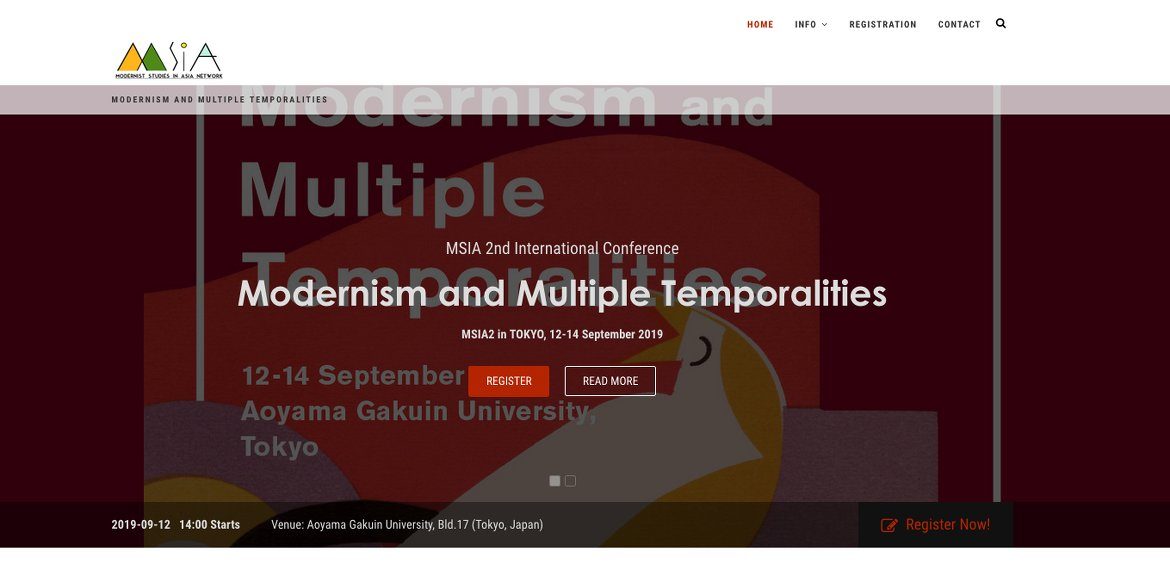Following its successful inaugural conference held in June 2018, the Modernist Studies in Asia Network (MSIA) will hold its second annual international conference in Tokyo, Japan. It will be held in the Aoyama Campus of Aoyama Gakuin University, located in the Shibuya/Aoyama area of Tokyo, a hotspot of cutting-edge culture and business activity in Japan.
This year’s conference theme is “Modernism and Multiple Temporalities”. The concept of psychological time has long been a central theme of modernist studies, particularly with reference to textual features such as the stream of consciousness and narrative fragmentation. In recent years, however, increasing attention has been paid to the ways in which the ‘politics of time’ (Peter Osborne’s term) has defined the very experience of modernity and generated a variety of modernist innovations such as the avant-garde rhetoric of rupture or attention to the communal rhythm of the everyday. Starting with Karl Marx’s observation on capitalism’s ‘annihilation of space by time,’ many critics have examined how the dominant versions of time (such as Walter Benjamin’s ‘homogenous, empty time’, or what E. P. Thompson called ‘time discipline’) colluded with capitalism, colonialism, and imperialism; meanwhile, they have also observed the ways in which the dominant ideologies were often contested through the multiplicity of temporality in various locations.




